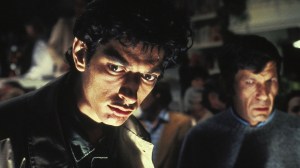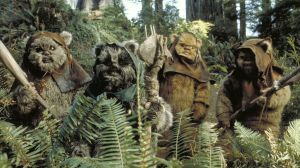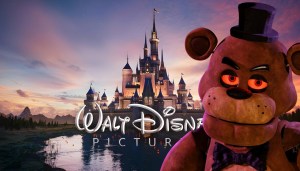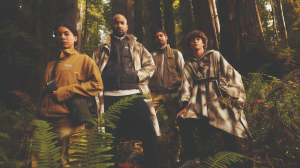Peter Jackson’s The Lord of the Rings trilogy is one of the most successful cinematic experiments in the history of the medium, from all perspectives. As if tackling the iconic stories of J.R.R. Tolkien wasn’t ambitious enough, Jackson and his collaborators filmed all three epic entries in the trilogy back-to-back-to-back, blending together classic filmmaking techniques with cutting-edge technology, all while maintaining the integrity of the source material. Despite its countless accomplishments, some fans get stuck on one question about the narrative: If the Great Eagles could save Frodo and Sam from Mordor at the end of The Lord of the Rings: The Return of the King, why didn’t the Great Eagles fly them there in the first place?
Videos by ComicBook.com
The short answer to this decades-old question is the most simple: if the Eagles flew the Fellowship to Mordor, you wouldn’t have a story. Admittedly, there are many more in-world reasons why this didn’t happen, but this straightforward answer serves as the clearest response to an ever-growing population of movie fans who struggle with media literacy.
If the Great Eagles, either in the books or in the movies, had simply flown the Fellowship to Mordor, we wouldn’t have visited Rivendell, we wouldn’t have met Legolas, Gimli, or Boromir, we wouldn’t have traveled through the Mines of Moria or the Gap of Rohan, we wouldn’t have learned about Ents, Gollum, King Théoden, or Eowyn, we wouldn’t have witnessed the Battle of Helm’s Deep, and, most importantly, we wouldn’t have spent enough time with any of these fantastic characters to invest in what their journey was in the first place.
Still, though, in addition to there being major conceptual reasons why the Great Eagles didn’t fly Frodo, Tolkien’s novels provide a number of reasons why such a plan never would have worked, such as:
- The entire plan was to travel to Mount Doom as innocuously as possible, so the Fellowship flying into Mordor on the backs of Giant Eagles might have tipped off Sauron to what was happening.
- The Great Eagles, much like the Ents, avoided directly engaging in conflicts that didn’t directly impact them, as they were their own race with their own problems to deal with. The only reason Gandalf was saved from Isengard and the Great Eagles rescued Frodo and Sam was due to a personal connection Gandalf had established with them, so rather than the Eagles doing what was “right,” they were merely paying off a favor to the wizard.
- If Sauron had spotted the Great Eagles, he could have sent the Witch-king of Angmar on his fellbeast to battle the Eagles and, had the Eagles lost, the Fellowship would have essentially handed Suaron the One Ring on a silver platter.
- Hobbits were specifically responsible for carrying the ring as they were considered less corruptible, so were the Giant Eagles to have easy access to the One Ring, they may have taken it for their own uses.
Fans of sci-fi and fantasy have spent decades bickering about the most minute and unimportant details about the worlds they love most, so it’s not like wondering about a fictional universe inherently means you don’t understand it or even that you don’t love it. In the age of social media, though, there’s been a growing trend of movie and TV fans who opt to take every detail about a piece of fiction as literally as possible, often in an attempt to outsmart the creatives who brought such projects to life.
[RELATED: Lord of the Rings: What Does the One Ring Actually Do?]
The limitations of platforms like Twitter, Instagram, and TikTok mean that, even when a fan is attempting to share something they love about a movie or TV show, they present others with a brief, out-of-context snippet that allows tremendous room for misrepresentation. Engaging in such discourse, along with how easy it is to passively watch something inattentively while scrolling on our phones, creates a disconnect between the viewer and the media: we’re no longer immersing ourselves wholly in the worlds these movies and TV shows present, we’re only engaging in exactly what we are presented with and critiquing them on what we’re not being shown and opting out of critical thinking or suspensions of disbelief. Add to that the fact that some users intentionally spark outrage, debate, or controversy just to increase engagement that can be monetized, you have armies of bad-faith arguers emerging with willful ignorance attempting to “solve” a narrative.
Why did the apes in Planet of the Apes speak English, when there are plenty of other languages they could have learned? Why didn’t Marty’s parents in Back to the Future recognize their son as the strange boy who helped set up the two of them as teens? Why did the aliens in Signs, whose weakness is water, land on a planet that is 70% water? All of these are valid questions, were they applied to the real world, but you’re also opting into watching a movie, which should temper expectations accordingly. The answer to all of the above questions is the same reasoning behind why we don’t regularly see characters take meal and bathroom breaks, yet by leaving out such sequences, we don’t have to question if the humans we’re watching have evolved to the point of not needing to eat or use the facilities: we buy into these realities.
Movies and TV series aren’t above being nitpicked and they aren’t devoid of critical flaws, as there are countless examples of universes being set up by storytellers that actively contradict the rules they present. Even accomplished cinematic achievements aren’t without their flaws (why did that one stormtrooper bump his head on the doorway in Star Wars: A New Hope and how did no one spot that car driving in the background of The Lord of the Rings: The Fellowship of the Ring?) but a majority of these supposed plot holes reflect more on the viewer than on the media itself. Despite all of these stories being meant as distractions from the real world, some audiences are doing themselves a disservice by applying real-world limitations to awe-inspiring adventures. Plus, Peter Jackson probably just couldn’t find Eagles big enough to carry the actors.








